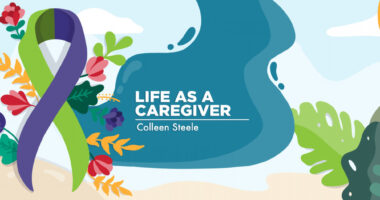I’m Seeking Professional Help to Cope With My Diagnosis

Before my pulmonary hypertension (PH) diagnosis, I’d never had therapy or counseling — though perhaps I could have used it. Over the past three years, I’ve constantly toyed with the idea.
I’ve always been good at putting on a brave face, and after my diagnosis, I went into survival mode. That meant focusing on the positives, taking life one day at a time, and being in a bit of denial.
This strategy worked well for me for a while. I was ticking along and not giving my illness much thought, except when my symptoms were bad. But of course, this couldn’t last forever. The things you refuse to address demand your attention eventually.
When my relationship ended with a partner I had been with for three years and prior to my diagnosis, I realized how much I had managed to suppress. I was desperately hanging on to who I was pre-diagnosis, but I wasn’t that person anymore.
A diagnosis like pulmonary hypertension changes your worldview. You go from thinking, “Yeah, awful things happen, but not to me,” to, “Wow, it really can be anybody, including me.”
Even when all this caught up with me, I still found myself reluctant to seek professional help. I wasn’t opposed to it, and I always encouraged people who were thinking about counseling, but I felt uncomfortable with the idea of being that vulnerable with someone.
However, some problems are so complex and painful that your friends and family aren’t necessarily equipped to advise you and support you on their own. My friends are incredibly supportive, but sometimes when I talk about my health worries, they don’t know what to say. They haven’t experienced anything similar and are scared to say the wrong thing. Furthermore, I often find myself holding back from these conversations, as I don’t want people to worry about me.
A few months ago, I realized that processing my diagnosis and coming to terms with the limitations PH puts on my life wasn’t going to happen overnight, and it wasn’t something I could do alone.
I booked my first therapy appointment.
Since I started seeing a counselor, I’ve become aware of a lot of misconceptions I held about therapy. For instance, therapy isn’t just for people who have hit rock bottom or reached a breaking point. It’s there to help you cope with life’s challenges in the healthiest way possible.
While no amount of therapy sessions can change my diagnosis, I can change the way I respond to it if I put in the work. And I’m glad I didn’t wait until I reached a crisis point.
***
Note: Pulmonary Hypertension News is strictly a news and information website about the disease. It does not provide medical advice, diagnosis, or treatment. This content is not intended to be a substitute for professional medical advice, diagnosis, or treatment. Always seek the advice of your physician or other qualified health provider with any questions you may have regarding a medical condition. Never disregard professional medical advice or delay in seeking it because of something you have read on this website. The opinions expressed in this column are not those of Pulmonary Hypertension News or its parent company, Bionews, and are intended to spark discussion about issues pertaining to pulmonary hypertension.








Leave a comment
Fill in the required fields to post. Your email address will not be published.